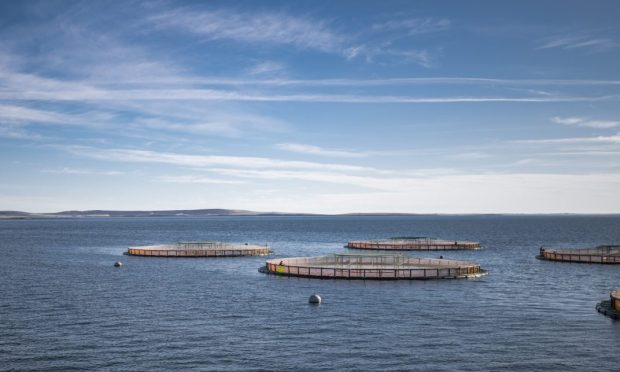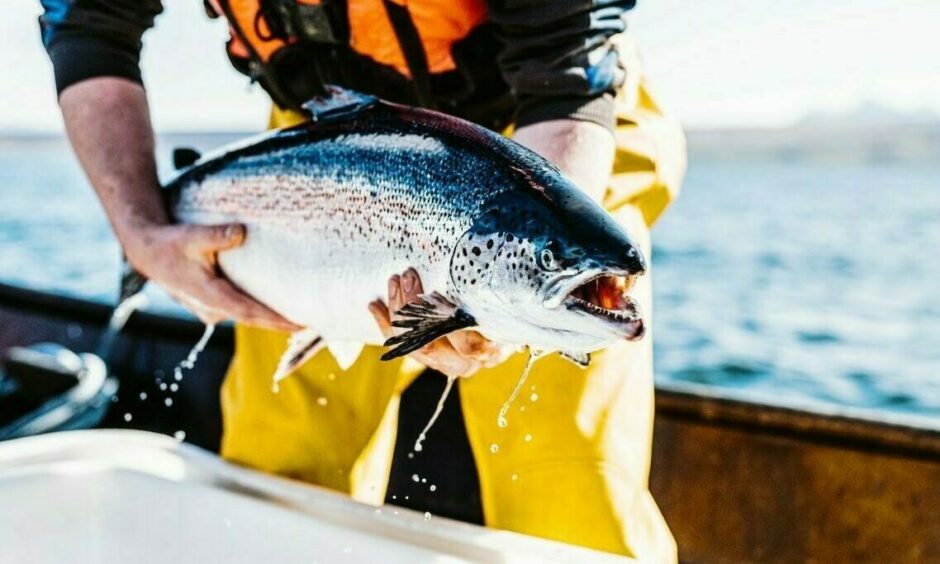Scottish salmon will gain a new protected geographical indication (PGI) by the end of April.
The labelling decision was made by the Department for Environment, Food and Rural Affairs (Defra).
It means only the Western Isles, Orkney, Shetland and coastal region of mainland Scotland will be able to sell it under the term “Scottish salmon”.
The new legal status has been put in place in order to protect the reputation of “world-beating quality”.
It also aims to prevent the risk of food fraud through imports of “inferior salmon products” with lower environmental and food safety standards.
The update replaces a previous PGI of “Scottish farmed salmon” and was needed because wild Scottish salmon is no longer available to buy in supermarkets.
Scottish salmon is ‘rightly considered the best in the world’, says chief executive
Salmon Scotland chief executive Tavish Scott believes the status change will help to protect the farmed product’s reputation.
He said: “Farm-raised Scottish salmon is a globally recognised brand and rightly considered the best in the world.
“It is vital that we take steps to protect our premium product from food fraud.
“When consumers talk about ‘Scottish salmon’, they are talking about farm-raised Atlantic salmon from Scotland.
“This (PGI) change makes that clear, while boosting legal protection post-Brexit.”
The change will ensure fish farm operators cannot label a product as “Scottish salmon” if it doesn’t meet the PGI terms.
Mr Scott also hopes the new rules will protect the country’s salmon farmers and their hard work.
He added: “Scotland’s salmon farmers work hard to rear their fish.
“This recognition by Defra is testament to the commitment of all those in remote communities who continue to meet the growing demand for Scottish salmon at home and abroad.”
Scottish salmon is the UK’s largest food export, with international sales of £581 million last year.



Conversation